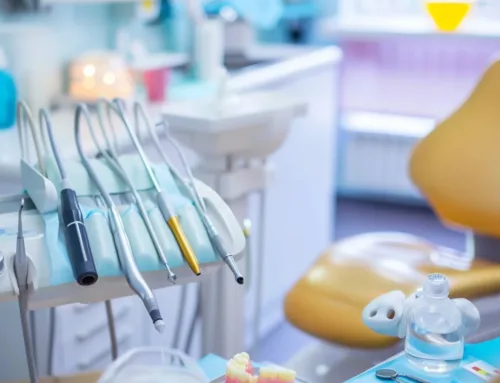How are Teeth Removed? Does it hurt? What Does it Cost? Options for Missing Teeth?
Sometimes a patient needs a tooth removed from their mouth. There are several reasons a dentist will recommend this treatment; maybe a tooth is impacted or misshapen or the purpose could be to realign teeth in a healthier way.
If a dentist suggests you undergo a tooth extraction, you should understand what the process entails, the cost and what to expect after the procedure is complete. By setting a realistic expectation, you can ease your concerns, be prepared for the treatment and make sure your coverage can take care of the fees.
Let’s start by reviewing the various reasons that a patient might need a tooth or teeth removed. We’ll explore potential costs and what other options might exist so you can have an open and frank discussion with you dentist. While they will only advise you to pursue treatments that can help you, it’s never a bad idea to look at other options that might exist.
Tooth Extraction Process
Tooth extractions can be performed by either a dentist or an oral surgeon. First, a patient will receive an injection of a local anesthetic. This will completely numb the area and ensure that the patient doesn’t experience any pain. Certain cases may call for a stronger general anesthetic. Your dentist will review this with you prior to administration and during this time you should raise any concerns you might have. You can also share your sedation preferences and the dentist will do everything they can to make the process as easy as possible.
At Georgian Dental®, a dentist may opt to extract the tooth during a checkup. The process can include expanding the tooth socket. The socket is where the root is encased inside the jawbone. By expanding it, the tooth can be separated from the ligament, which keeps it securely in place.
With respect to impacted teeth, some of the gum and bone tissue that covers the tooth must be removed. Using forceps, they will grasp the tooth and remove it by moving it back and forth until it is released from the jawbone ligament. In some cases, a tooth can be so securely in place that they need to be removed in pieces.
Once the tooth has been successfully removed, the surrounding teeth will shift. This can present challenges to chewing or the general function of one’s jaw. It might be recommended to replace the removed tooth with a dental implant.
A tooth extraction can usually be completed relatively quickly.
Reasons for Removing Teeth
Despite adult teeth being considered permanent, extractions are a common procedure to make sure a patient’s oral health is optimal and that they experience no pain or discomfort while chewing, biting, swallowing or speaking.
Reasons for needing a tooth extracted, include:
Overcrowding
Overcrowding, caused by teeth being misshapen or too big, can cause teeth to be misaligned. Often, a tooth will need to be extracted to make room for the remaining teeth, allowing them to move into a proper final position. Overcrowding can also prevent teeth from erupting through the gum causing severe pain for the patient.
This can also be an imperative step before a patient undergoes various orthodontic work.
Infection
If a tooth is damaged to the point where the pulp—a tooth’s centre where nerves and blood vessels exist—is infected, then an extraction might be the best course of action. Your dentist might first try antibiotics but they are often rendered ineffective against harsher infections. An extraction can stop an infection from spreading and worsening.
Extractions are also an option when the risk of infection is possible. This is especially true if a patient has a compromised immune system because this risk can carry severe consequences.
Periodontal Disease
Periodontal disease is when the tissue and bones that hold teeth in position become infected or experience inflammation. This can force teeth to loosen resulting in the need for an extraction.
Injury
A patient could also require a tooth extraction if their tooth was damaged as the result of an injury. If this happens, a dentist will try to preserve their patient’s teeth and alignment. Unfortunately, if a tooth cannot be saved then an extraction will be necessary.
Whatever the reason might be, if you need an extraction it’s best to not delay treatment. Once you receive the diagnosis, you should work with your dentist to book your appointments.
After the Extraction
Post-procedure, patients will spend the next few days recovering in the comfort of their home. A post-treatment plan can include several of the following:
- Gauze placed in one’s mouth to soak up any blood and promote clotting in the tooth’s socket.
- Ice should be applied for 10 minutes at a time to the affected area to minimize swelling.
- Prescribed painkillers
- Activity should be limited for 1-2 days.
- Rinsing with a warm salt water solution.
- Do not use a straw for 24 hours.
- Avoid smoking tobacco.
- Make sure your head is propped up when lying down. This can reduce bleeding.
- Continue with your oral hygiene routine except on the extraction site.
Most patients feel some pain or discomfort immediately after the procedure and for up to 24 hours. Swelling and bleeding might occur, but generally isn’t something you need to worry about. If bleeding persists for longer than four hours after the extraction, you should contact your dentist. Additionally, you should make an appointment if you are nauseous or vomiting, have a fever or the chills or are experiencing coughing, shortness of breath, chest pains or excessive discharge from the area.
Tooth/Teeth Extraction Costs
Costs for a tooth extraction vary based on a patient’s oral health, the number of visits, the length of each visit and the fees associated with the administered anesthesia.
The fees can range from:
- $75 – $300 for non-surgical, gum-erupted tooth extraction.
- $150 – $650 for a surgical extraction with some form of anesthesia.
- $185 – $600 for soft tissue and complicated surgical extractions.
- $75 – $200 for wisdom tooth extraction.
The price can increase if the tooth is impacted. Ultimately, you should sit down with your dentist to review costs and you can even ask for the fees to be itemized. Prior to this visit, you should speak to your insurance provider to understand what is covered.
Dental Implants
To replace your missing teeth, you can have a dental implant inserted. This will help keep surrounding teeth in place and can contribute to your overall oral health. Your options may include dentures, dental crowns, dental bridges or in the case of Georgian Dental® patients, our proprietary, All-on-4 Implants.
The benefits of dental implants can include:
- Improvement to one’s speech and the appearance of their face and mouth.
- Increase in overall comfort.
- The ability to enjoy harder or crunchier foods.
- A greater resistance to cavities.
- Reduce the potential for bone loss.
- They blend well with natural teeth
- Can prevent the loss of other teeth over time.
They will also let you feel more confident when smiling or in most social or professional settings.
Need a Tooth Extraction?
If you’re searching for a trusted and reputable dental clinic in the Barrie area, complete this short form to book your initial consultation. During this appointment, we’d be happy to answer any questions you might have, review treatment options, discuss our holistic process, and review costs and what’s covered by your insurance provider (if applicable).
Appointment Request
If you’re interested in any of our procedures, and would like to meet with one of our dentists to discuss options, costs and get additional information, complete this short form and we’ll give you a call to arrange for a no-obligation appointment at our Barrie clinic.










